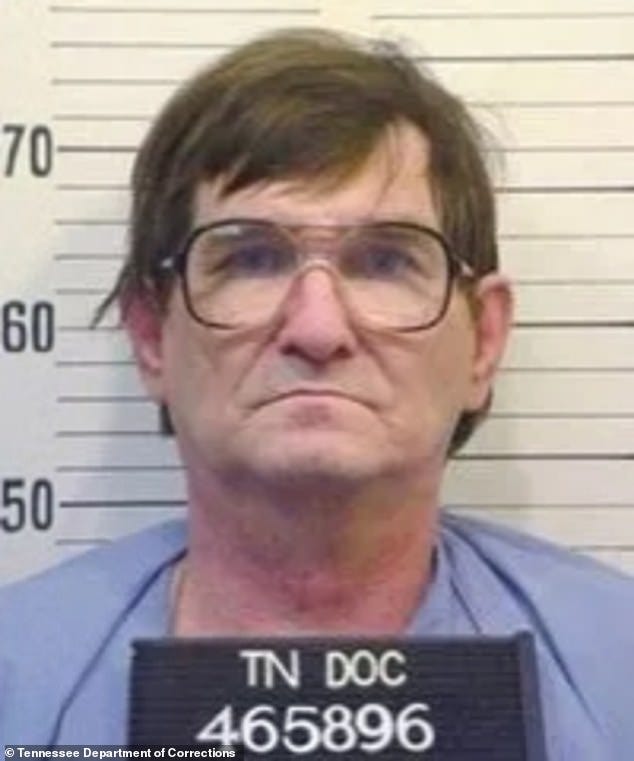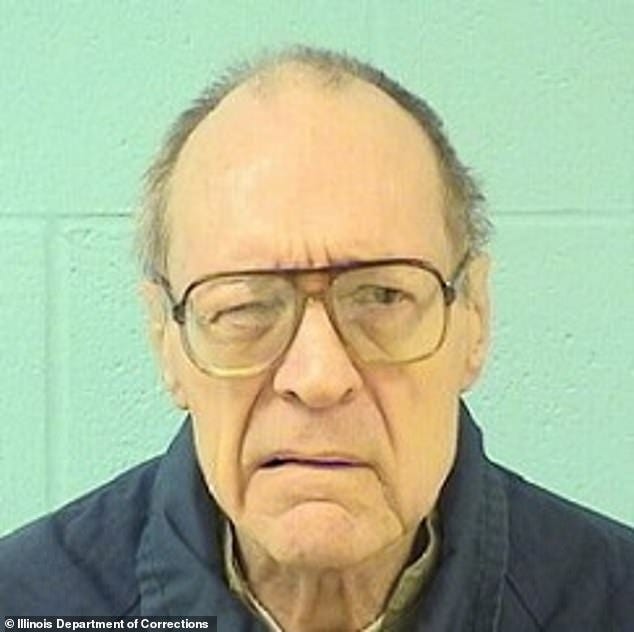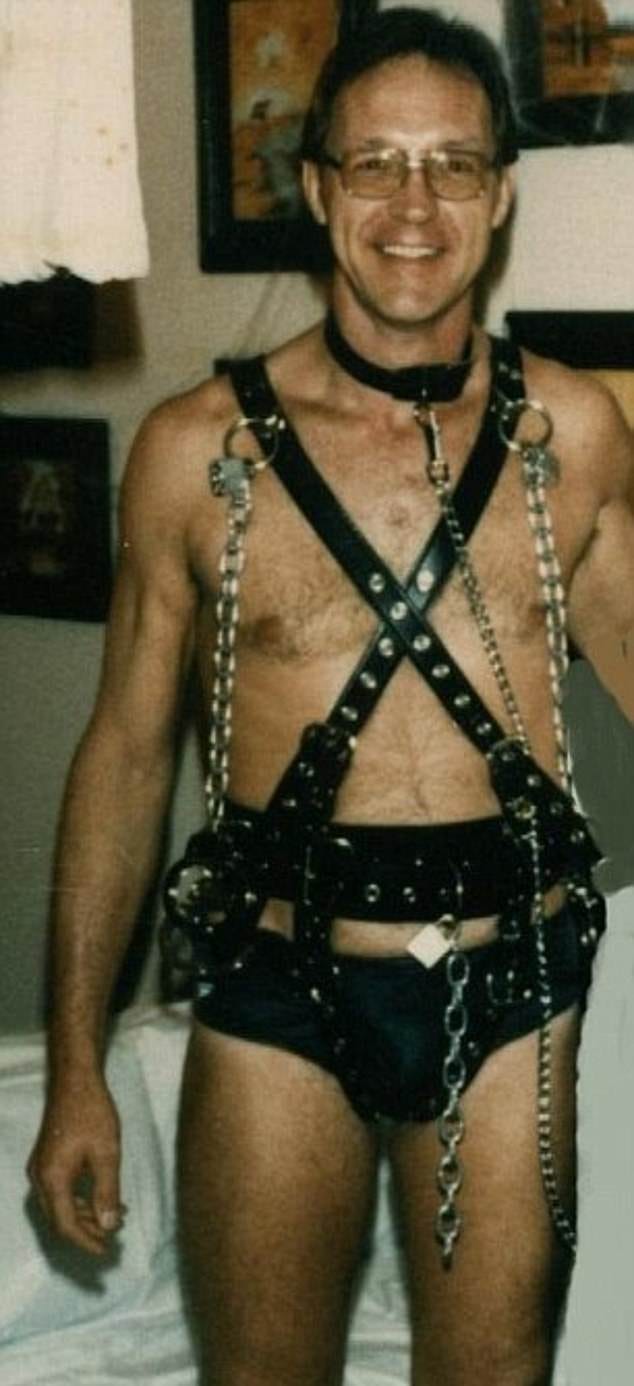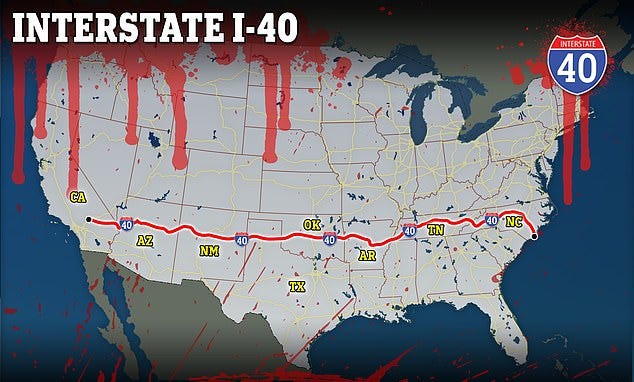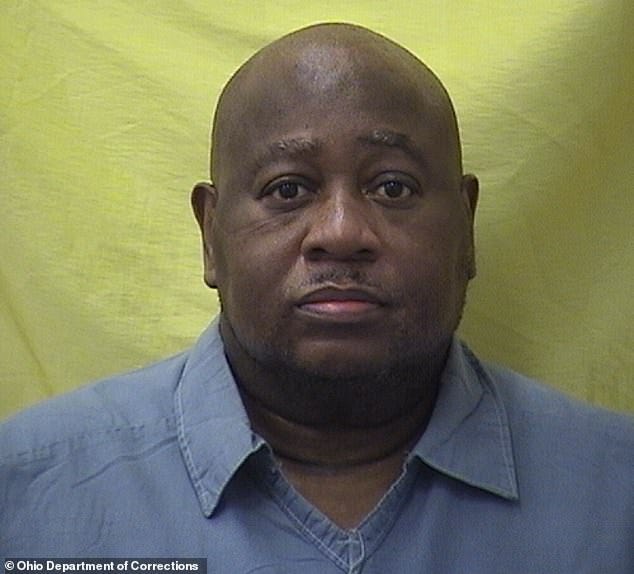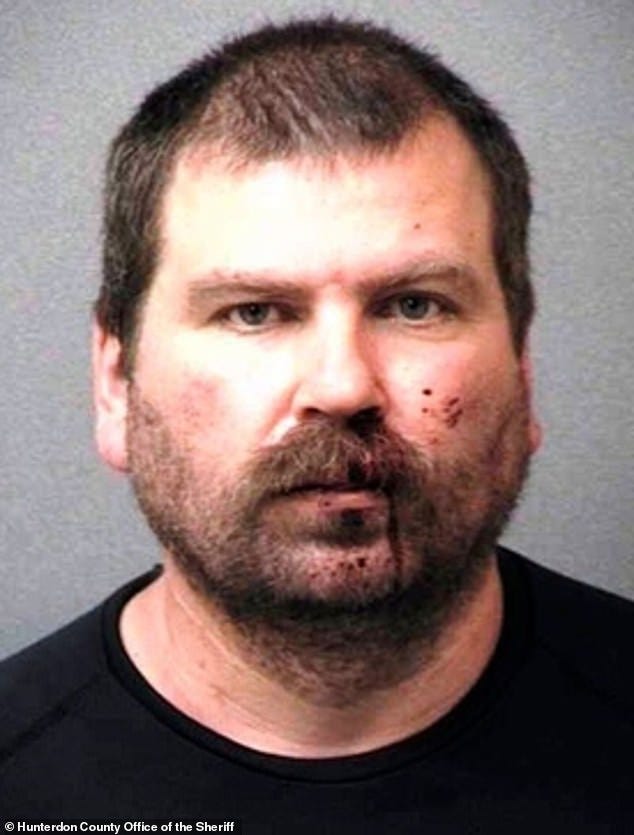FBI on the hunt for 500 truckers possibly involved in hundreds of MURDERS
Cops believe that nearly 1,000 women have been murdered by long-haul truck drivers. And, finally, they had a break in the hunt.
By Zoey Sky
July 3, 2024
The Federal Bureau of Investigation (FBI) is reportedly looking for 500 truckers possibly involved in hundreds of murders over the last 35 years.
Their favorite highway for finding victims revealed - and inside their mobile 'rape and torture chambers'
Cops believe that nearly 1,000 women have been murdered by long-haul truck drivers.
And, finally, they had a break in the hunt.
At a truck stop in Nashville, Tennessee, long-haul driver Bruce D. Mendenhall (pictured) was seated in his cab when a homicide detective approached him.
The detective from Nashville Metro Police Department asked Mendenhall simply: 'Are you the person we've been looking for?'
Mendenhall shrugged. 'If you say so,' he replied.
What police found inside the 56-year-old's truck cab defied belief. Investigators called it 'a killing chamber'.
The stash of torture implements included 'a rifle, a nightstick, tape, handcuffs, latex gloves, sex toys and a bag of bloody clothing,' according to the police report.
DNA on the clothing matched five murdered or missing women. One was Carma Purpura, a 31-year-old mother of two who was last seen at a truck stop in Indianapolis, Indiana – nearly 300 miles away.
Also in the truck were Purpura's mobile phone and her bank card.
Blood spatter in the cab suggested Mendenhall had killed her there – yet he refused to say where her body was hidden. Her remains were not found for another four years.
Mendenhall – from Illinois and married with two daughters – was arrested in 2007 and subsequently convicted of the murders of Winters and Hulbert.
He has also been charged with the killing of Purpura – and is suspected of murdering at least five more women. Two, including sex-worker Robin Bishop and hitchhiker Belinda Cartwright, were likely run down by his truck.
Former FBI Assistant Director for Counterintelligence Frank Figliuzzi disclosed this in his second book "Long Haul: Hunting the Highway Serial Killers."
According to him, the federal law enforcement agency's Highway Serial Killings (HSK) initiative has gathered a list of 850 murders that may be linked to long-haul truckers in its database.
Figliuzzi approached the topic from different angles while writing his book. He spent many hours riding with a long-haul driver and he also interviewed social workers and academics who helped at-risk people avoid human traffickers and pimps, who once frequented rest stop parking lots but now use the internet for their dealings.
Figliuzzi also talked to the crime analysts trying to catch the suspects, who are allegedly exclusively men, who commit what the FBI classifies as highway homicides.
According to the FBI, highway homicides involve "female victims last seen at or near rest stops, truck stops or in very close proximity to a highway; who were either assaulted or killed; and who were dumped near a highway."
While several truckers have been convicted of serial murders throughout the years, in America at least one quarter of the cases in the database are still unsolved.
This means there are several active serial killers working as semitruck drivers, explained Figliuzzi.
His book also discussed in forensic detail how hundreds of truckers scour rest stops, motels and roadside restaurants for their victims. Because of the transitory nature of their job, they can kill and remain almost untraceable.
The FBI's HSK estimates that at least 400 to 500 truckers could be connected to many murders from the past 35 years. While at least 850 women have disappeared or been found dead along the main interstate routes, only a small fraction of killers have been apprehended.
The HSK is led by Catherine DeVane, she specializes in the behavioral analysis of criminals. Her team match crimes to killers. Forensic evidence is crucial.
So too is identifying the 'modus operandi' – an individual killer's hallmark techniques.
The hallmark of Robert Ben Rhoades (pictured), one of the first 'truck-stop killers' on record, was a sick fetish: He shaved the pubic hair of his victims.
Rhoades is thought to have killed 50 women over 15 years. Like Mendenhall, he built a mobile torture dungeon into the back of his truck.
Behind its steel door, women were held captive in handcuffs. Rhoades inflicted agonies by piercing their flesh with fish-hooks. Many were prostitutes. His final victim, Regina Walters, was not – in fact, she was just 14 years old. (Pictured: Rhoades' torture chamber located inside his truck)
One of Rhoades' victims was 14-year-old Regina Walters (pictured by Rhoades), a runaway from Pasadena, Texas. A horrifying final picture of Walters shows her with a shaved head, forced into a black dress and high heels, looking terrified of Rhoades behind the camera.
One is Dellmus Colvin, a shaven-headed black man now 64 years old. He was dubbed the 'Interstate Strangler'. Following his arrest in 2004, Colvin told detectives he didn't keep a tally of his murders.
He couldn't remember them all. But later he estimated he'd killed between 47 and 52 women, almost all sex workers.
Like Mendenhall, he wrapped their corpses in plastic sheeting and duct tape. But he denied having sexual intercourse with the bodies, and insisted rape was not his chief motive. He just enjoyed killing, he said.
Adam Leroy Lane (pictured) was sentenced to 25 years for the attack of Kevin and Jeannie McDonough's 15-year-old daughter, Shea.
Miraculously, Shea survived – and Lane was sentenced to 25 years for the attack. He later also pleaded guilty to murdering two women and the attempted murder of a third.
In his truck, police found knives, wire garottes and a martial arts throwing star.
What no one knows for sure, not even the FBI's Highway Serial Killings Initiative, is how many other truckers carry these weapons of torture – and how many women's bodies have never been found.
Serial killer truckers obsessed with CONTROL
While companies do conduct a cursory background check, Figliuzzi added that some trucking companies will prominently advertise that they are "second-chance companies" for people with felony records.
He added that trucking itself could be "made less alienating or less attractive to people with violent ideas" by enforcing better screening procedures, something he believes must be better legislated.
(Related: Right Now with Ann Vandersteel: Deanna Williams recounts her story of abuse and manipulation – Brighteon.TV.)
For FBI crime analyst Catherine DeVane, who also heads the HSK initiative, there are two main reasons why serial killer truckers do what they do. Some want to "control life and death" because they need to "feel the power of controlling the outcome."
Killers in the first category will usually rape and sexually torture their victims because they enjoy inflicting fear and pain.
Others, meanwhile, kill out of compulsion. According to DeVane, these kinds of serial murderers do not want to have sex with their victims but "want to murder someone." She warned that the two categories can overlap, like in the case of Mendenhall.
Social work professor Celia Williamson of the University of Toledo in Ohio spent 30 years studying adult prostitution and the sex trafficking of minors in the United States. She highlighted the fact that all the power is on the truckers' side.
Despite this alarming fact, prostitutes are desperate to earn money because they are beaten up if they don't meet their targets. Enter the truckers, who have money and have control of the meeting place – the cab of their truck.
Once the encounters are over, they can just drive away.
Additionally, prostitutes who report sex abuse are often dismissed, especially after police officers find out what they do for a living.
Visit Twisted.news for similar stories.
Share or comment on this article.
Your support is crucial in exposing fake news and in helping us defeat mass censorship.






